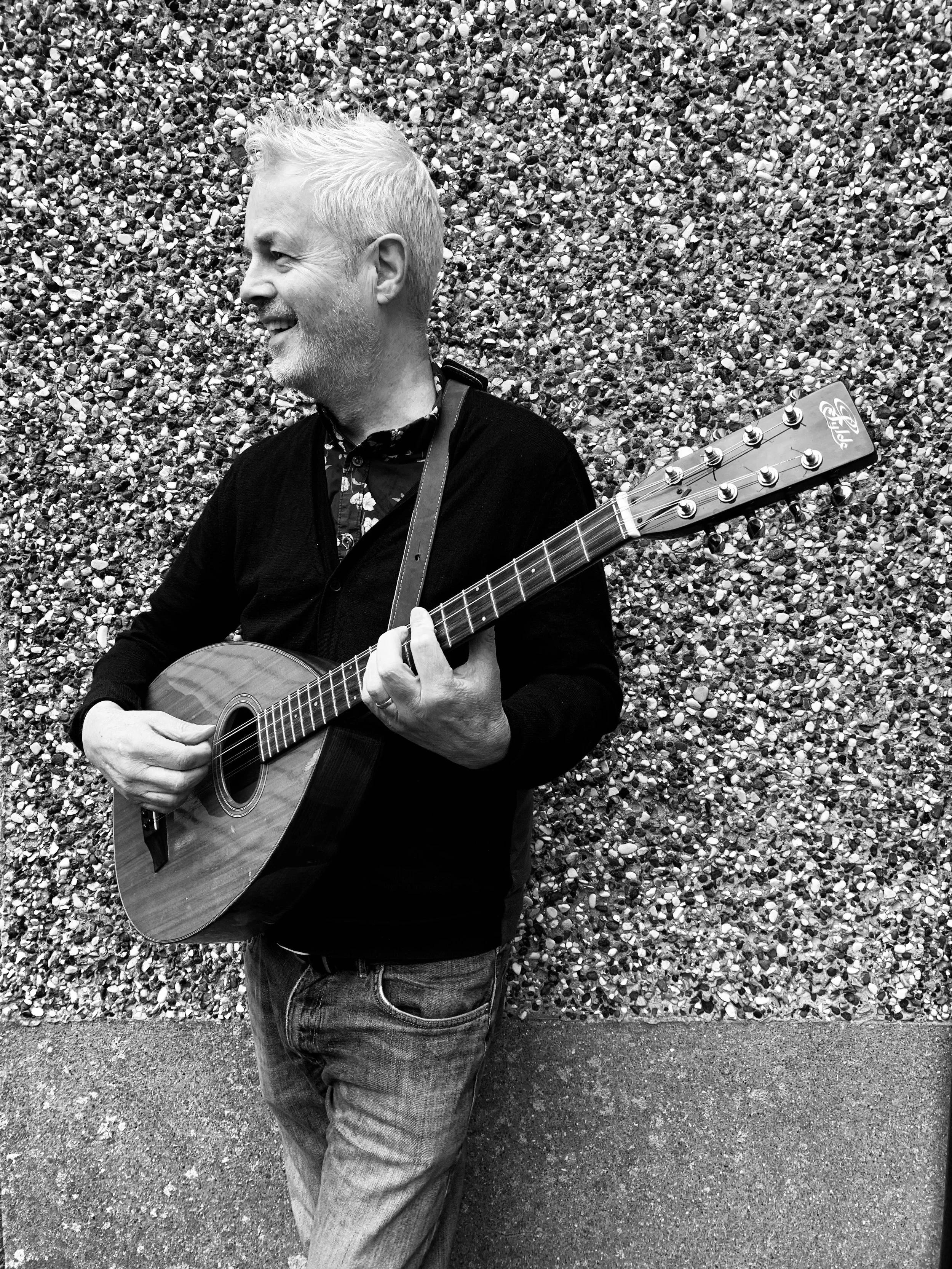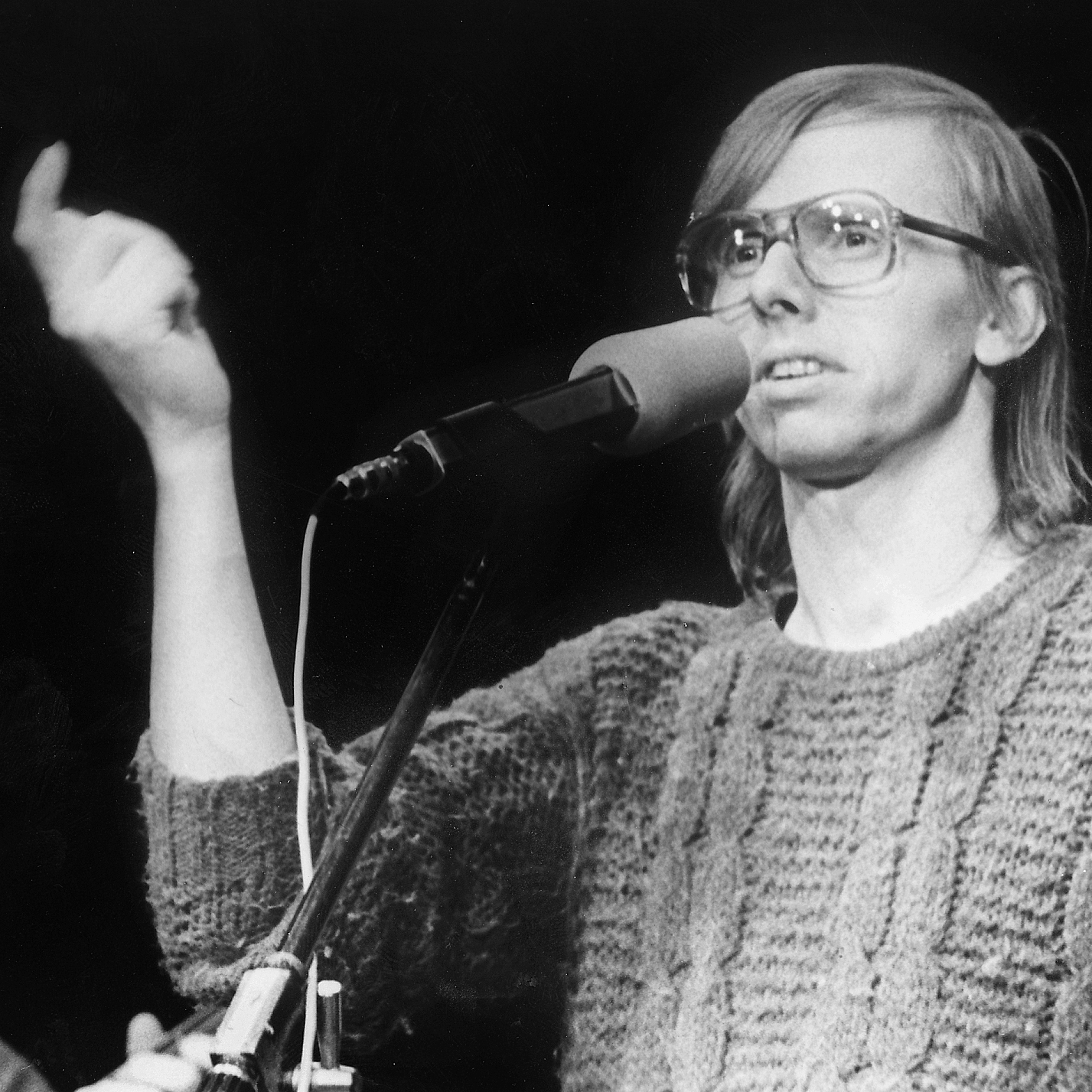DAVE
ROBB
Dave Robb is a Reader in Music at Queen’s University Belfast. His research has focussed on the role of musical forms of protest in German history going back to the 1848 Revolution. Completing his PhD at the University of Sheffield in 1995 he was a post-doctoral tutor at the Humboldt University in Berlin before being appointed to German Studies at Queen’s in 1999. His first book Zwei Clowns im Lande des verlorenen Lachens. Das Liedertheater Wenzel and Mensching was published in Berlin in 1998. Other books include Protest Song in East and West Germany since the 1960s (editor, 2007) and Songs for a Revolution. The 1848 Protest Song Tradition in Germany (co-author, 2020). The latter stemmed from an AHRC/DFG-funded research project with the University of Freiburg (2009-12). He has recently completed an AHRC Fellowship on ‘The Political Songs of Gerhard Gundermann in an East German and International Context’.
Dave is also a musician and songwriter. Prior to his academic career he was a member of the Scottish folk group Rua with whom he toured internationally and recorded the album Scottish Music (Celtic Music 1986). As a solo artist he toured as support for The Proclaimers in 1988. He performed at many Festivals including Reading (1990), the Edinburgh Fringe (1987-93) and Celtic Connections (1997).
Dave first became acquainted with the East German music scene in 1982-83 when, as a student of German at Edinburgh University, he spent a year abroad at the University of Rostock, GDR. After the fall of the Berlin Wall, he began a PhD on East German political song and ‘Liedertheater’ (song theatre) at Sheffield. For this Dave moved to Berlin in 1992 where he lived for most of the 1990s. As well as attending concerts of Hans-Eckardt Wenzel and Steffen Mensching, the political musical clowning act on which his PhD focussed, he also experienced Gerhard Gundermann live several times at the height of his career. Dave was in Berlin in 1995 when the controversial news broke of the singer’s previous involvement with the Stasi and then later, in June 1998, when the tragic reports came of his premature death.
Twenty years later, in June 2018, Dave was invited by Dutchman Johan Meijer to take part as a musician and translator in the ‘Gundermanns Lieder in Europa’ project. This took place as part of the activities marking the twentieth anniversary of the singer’s death. Organised by the Gundermann Seilschaft association that promotes the artist’s legacy, it took the form of a symposium, followed by a week-long workshop in Großräschen culminating in a concert in Hoyerswerda. Musicians from around Europe took part, translating Gundermann songs into their own languages. As well as producing a CD, this project resulted in a strong international network for future collaborations. It also gave Dave the idea to record the current CD Filling Stations for Losers. Songs of Gundermann as well as do some long overdue research into Gundermann’s art form in his years with the ‘Liedertheater’ group Brigade Feuerstein and his subsequent solo work as a singer/songwriter.
Listen to more Dave Robb on Spotify.
INTERVIEWS
The idea for the current CD came from Dave's participation in an international Gundermann project led by Johan Meijer . In June 2018 musicians from all over Europe took part in a week-long workshop near Hoyerswerda translating songs of Gundermann into their own languages. The result was the CD 'Gundermanns Lieder in Europa' (Buschfunk 2019) to which Dave contributed two initial songs, 'The Seventh Samurai' and 'Square up like men do'. This team of musicians met up again after lockdown to do a tour in East Germany in February 2023. Here is a German TV news clip about it featuring an interview with Dave.
THE SONGS OF GUNDERMANN
The songs I chose to translate and record come from the period 1990-98 in which Gundermann responds to themes such as society’s winners and losers, deindustrialisation, immigration, and the environment – all themes that are equally as relevant to our times today as they were back in the 1990s.
NEWS & ARTICLES
DAVE ROBB
FILLING STATION
FOR LOSERS
Songs of Gundermann
Gerhard Gundermann was an East German musician and miner from the Lusatian egion of south-east Germany. He came to the fore as a political singer during the protests leading to the fall of the Berlin Wall in 1989. He performed his two occupations side-by-side for years – he regularly went straight from shift work, operating an excavator in an open cast mine, to his gigs. He died in 1998 at the age of 43 at the height of his popularity.
25 years after his death the cultural fascination with the figure of Gundermann remains strong in East Germany. Tribute bands regularly perform his songs; the Gundermann Seilschaft e.V., an organisation based in Gundermann’s hometown of Hoyerswerda, promote musical and cultural events in his memory. He recently came to international attention with Andreas Dresen’s award-winning film Gundermann (2018).
The key to Gundermann’s continuing popularity lies – as well as in his infectious melodies – in the combination of utopianism and harsh realism in his lyrics. In the GDR he developed a new ‘heroic’ narrative to confront the rigid hierarchy of the socialist state. Later, in united Germany, he sang about the growing environmental threat. His songs express his eternal hope in humankind that is aware of its own fallibility, but also of its strength as part of the cycle of nature. In interview Gundermann famously stated: ‘I’d like to be something like a filling station for losers. I’d be happy if people said they needed bread, water and songs by Gundermann.’ His championing of the underdog continues to strike a chord with audiences living in a society that only deals in victory.
To BUY the Album
Listen to more Dave Robb on Spotify.
HAVE YOUR SAY
My name is Dave Robb. I am a Reader in Music at Queen’s University Belfast. As part of an AHRC-funded Fellowship I have written research articles and translated and recorded ten songs by the East German protest singer Gerhard Gundermann. I am using this questionnaire to measure the impact of this work. I intend to draw on this data for an Impact Case Study to go forward for the Research Excellence Framework 2029. Any responses used will be quoted anonymously. Some may appear in online material published by Queen’s University. By submitting this you are agreeing to its use as described above.
Queen’s University Belfast’s AEL Ethics committee has approved this research project.












